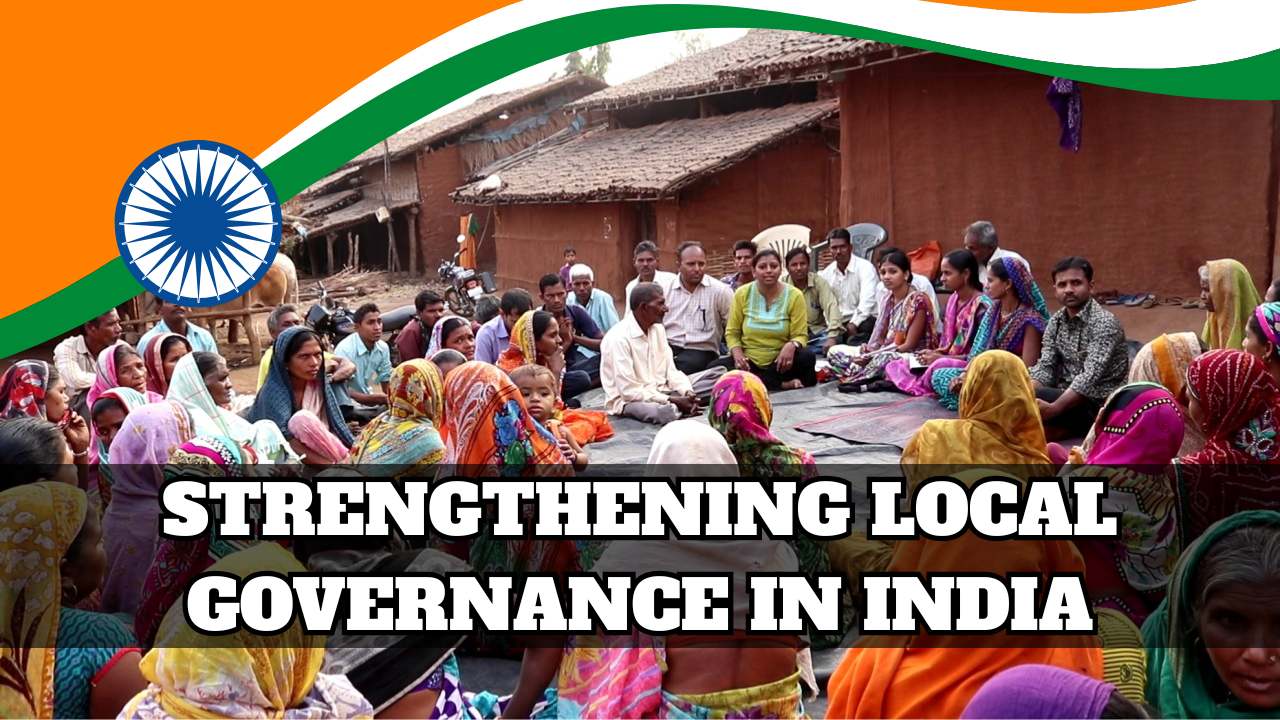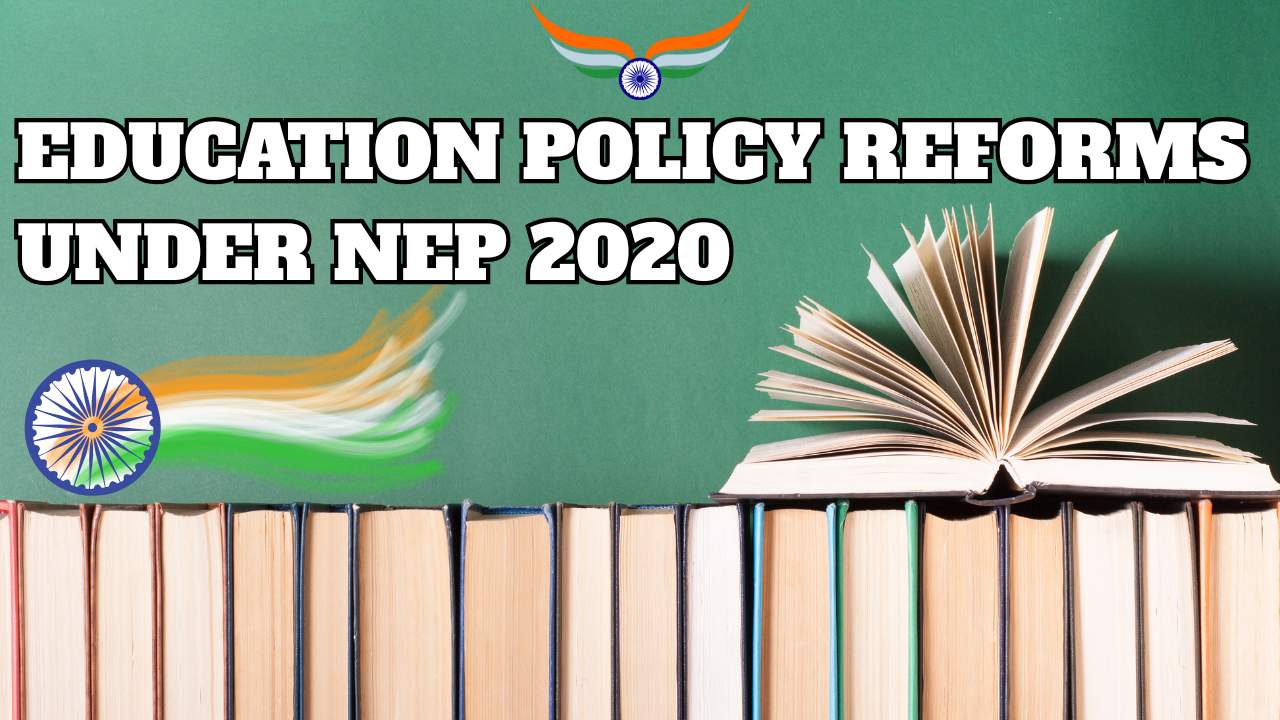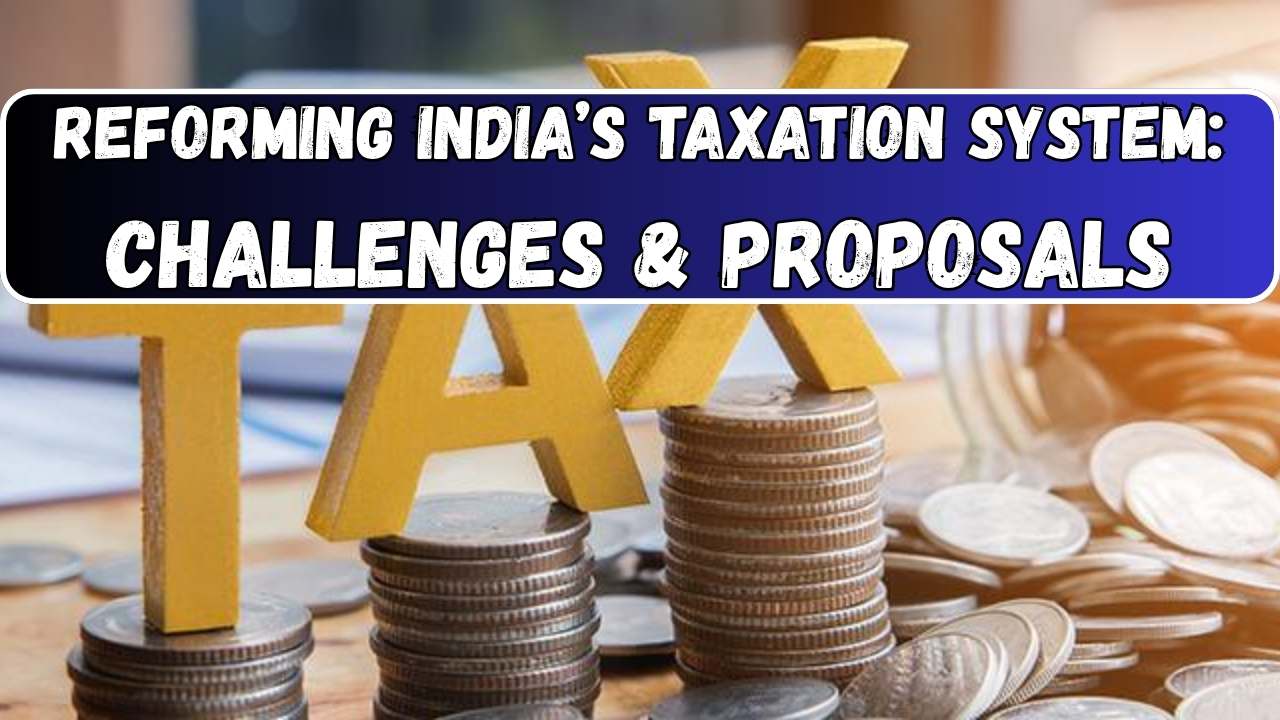A multifaceted strategy is needed to strengthen local government in India, including increased fiscal autonomy, administrative changes, and strong legal frameworks that provide local authorities with more authority. Although democratic decentralisation was made possible by the 73rd and 74th Constitutional Amendments, its implementation is still difficult. To solve this, local governments must be given more financial authority through initiatives like creating municipal bond markets, modernising property tax systems with GIS and market-linked rates, and guaranteeing steady fiscal transfers. Building capacity can also be facilitated by administrative reforms, including professionalising urban administration, establishing specialised cadres, and requiring frequent training sessions. Local administration can also be supported by strong legal frameworks, such as the creation of tribunals for speedy conflict settlement and the mapping of functions through activities. This article will assist the readers in knowing about Strengthening Local Governance in India.
Strengthening Local Governance in India
A multifaceted strategy that empowers local bodies by strengthening administrative reforms, fiscal autonomy, and strong legal frameworks. Although democratic decentralisation was established by the 73rd and 74th Constitutional Amendments, its implementation is still difficult. To solve this, local governments must be given more financial authority through initiatives including creating municipal bond markets, modernising property tax systems with GIS and market-linked rates, and guaranteeing steady fiscal transfers. Furthermore, with programs like social audits, participatory budgeting, and digital platforms for real-time monitoring, public participation and technological integration are essential for promoting accountability and transparency. India can support inclusive development, decentralisation, and empowered communities by concentrating on these areas and making sure that elections are fair and frequent. This would ultimately boost local governance and grassroots development. The readers of this post will learn more about Strengthening Local Governance in India.

Essential Requirements to Empower Local Bodies
To empower local bodies, it’s essential to:
- Enhance Financial Autonomy: Increase own-source revenue, implement modern property tax systems using GIS and market-linked rates, and develop municipal bond markets.
- Administrative Reforms: Professionalise urban administration, create specialised cadres, and mandate regular training programs.
- Robust Legal Frameworks: Establish tribunals for quick dispute resolution, define functions through activity mapping, and strengthen Metropolitan Planning Committees for regional coordination.
- Citizen Participation: Implement participatory budgeting, institutionalise citizen monitoring via social audits, and mandate citizen grievance platforms with transparent systems.
- Technology Integration: Leverage digital platforms for real-time monitoring, implement SwachhAI for waste management, and promote e-governance initiatives.
By focusing on these areas, India can promote inclusive development, decentralisation, and empowered communities, ultimately strengthening local governance and grassroots development.
How to Strengthen Local Government in India?
Strengthening local governance in India requires a multi-faceted approach that involves enhancing fiscal autonomy, administrative reforms, and robust legal frameworks. Some key strategies are stated below:
Fiscal Empowerment
- Enhance Financial Autonomy: Local bodies should have independent revenue sources, such as property taxes and local business levies.
- Modernise Property Tax Systems: Use GIS and market-linked rates to increase revenue.
- Develop Municipal Bond Markets: Enable direct market borrowing with credit rating mechanisms.
Administrative Reforms
- Professionalise Urban Administration: Create a specialised cadre with permanent technical staffing.
- Capacity Building: Provide regular training programs and adopt e-governance platforms.
- Strengthen Metropolitan Planning Committees: Enhance regional coordination and planning.
Robust Legal Frameworks
- Revise State Municipal Legislation: Empower local bodies with greater autonomy and authority.
- Establish Tribunals: Handle local body disputes quickly and define functions through activity mapping.
- Ensure Impartial Elections: Strengthen State Election Commissions and ensure regular elections.
Citizen Participation and Transparency
- Participatory Budgeting: Involve citizens in budget-making and ensure transparency.
- Citizen Grievance Platforms: Mandate transparent systems for addressing citizen concerns.
- Social Audits: Institutionalise citizen monitoring to ensure accountability.
Technology Integration
- Digital Platforms: Implement real-time monitoring systems for services and revenue collection.
- E-Governance Solutions: Enhance transparency and efficiency in local administration.
By implementing these strategies, India can promote inclusive development, decentralisation, and empowered communities, ultimately strengthening local governance and grassroots development.
What are the Factors Affecting the Strengthening of Local Governance in India?
- Inadequate Financial Resources: Local bodies lack financial independence, relying heavily on state and central transfers, which are often delayed or conditional. They also struggle to generate their own revenue through taxes and other means.
- Administrative Capacity and Human Resource Deficiency: Local bodies face severe understaffing, a lack of technical expertise, and inadequate training of existing staff. This hampers their ability to deliver essential services and implement development projects effectively.
- Political Interference and Lack of Autonomy: Frequent political interference undermines the functioning of local bodies, disrupting their autonomy and accountability. State governments often control crucial decisions, limiting the decision-making power of local bodies.
- Urbanisation and Infrastructure Stress: Rapid urbanisation has overwhelmed local bodies, straining their ability to provide essential services like housing, water, and sanitation. Infrastructure gaps and poor urban planning exacerbate these challenges.
- Limited Citizen Participation and Accountability: Meaningful participation by citizens in local governance is often limited, weakening local accountability. Gram Sabhas and ward committees, which are essential for citizen engagement, are not utilised effectively.
- Technological Constraints and Lack of Digital Infrastructure: Local bodies lack access to modern technology and digital infrastructure, hindering their ability to deliver services efficiently and transparently. Implementing digital platforms for real-time monitoring and citizen engagement can help bridge this gap
FAQS Related to Strengthening Local Governance in India
What is local governance in India?
Local governance in India refers to Panchayats and Municipalities managing local affairs.
Why is local governance important?
It’s important for grassroots democracy, community participation, and effective service delivery.
What are the challenges?
Inadequate finances, limited capacity, and political interference.








